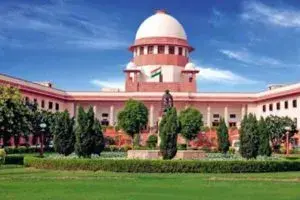Supreme Court- Extension of limitation period recalled
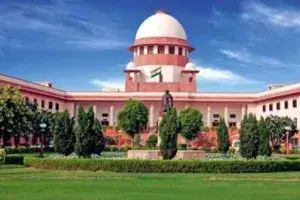 The Supreme Court considering the decline in COVID-19 cases, has recalled its suo motu order of April 27, 2021, extending limitation period.
The Supreme Court considering the decline in COVID-19 cases, has recalled its suo motu order of April 27, 2021, extending limitation period.
Foreign Trade Policy 2015-2020- Extended till March 21, 2022
 The Government has recently notified extension of the Foreign Trade Policy (FTP) 2015-2020 till March 31, 2022.
The Government has recently notified extension of the Foreign Trade Policy (FTP) 2015-2020 till March 31, 2022.
CCI Imposes fine of INR 200 Crores on Maruti Suzuki for Anti-Competitive Policies
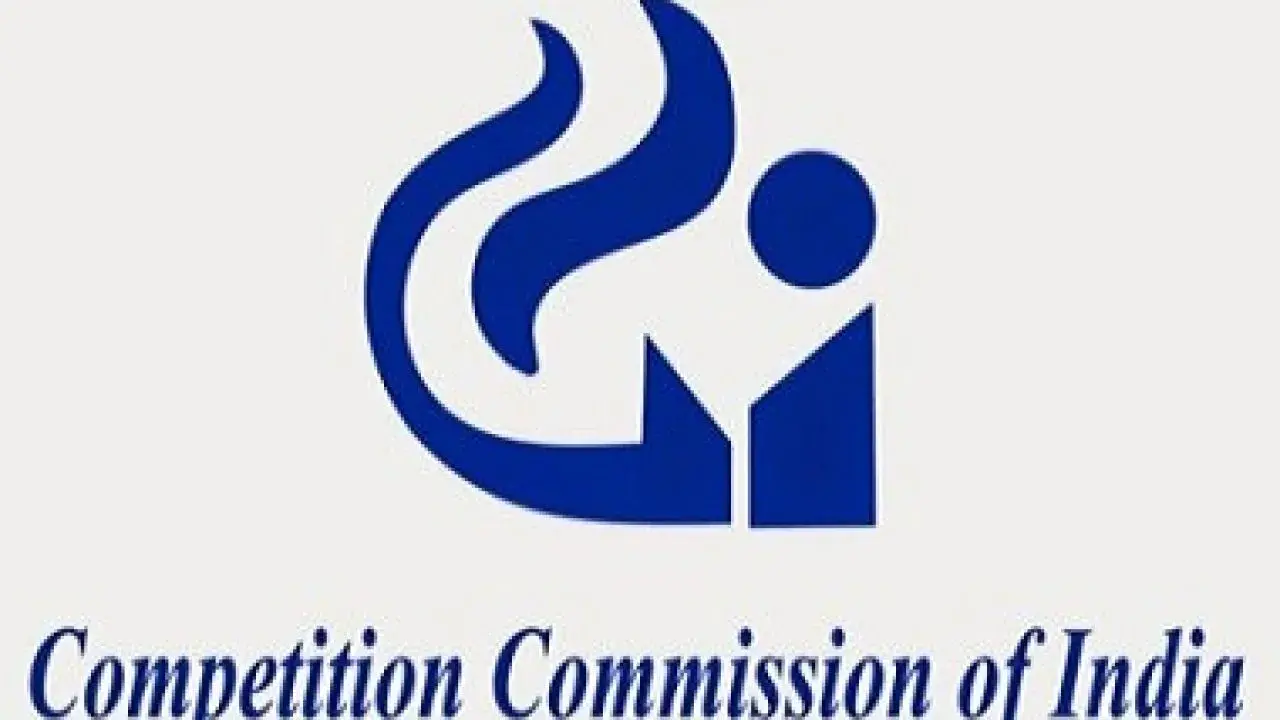 CCI imposed a fine of INR200 crore on Maruti Suzuki India Ltd (MSIL) for its anti-competitive discount policy.
CCI imposed a fine of INR200 crore on Maruti Suzuki India Ltd (MSIL) for its anti-competitive discount policy.
Botched up Hair, 2 Crores to Spare!!
 NCDRC recently snapped ITC hotels with an order to grant compensation of a rather sizable amount of ₹ 2 Crores to a model for alleged bad hair salon services.
NCDRC recently snapped ITC hotels with an order to grant compensation of a rather sizable amount of ₹ 2 Crores to a model for alleged bad hair salon services.
Government to issue SOP to make New IT Rules Lucid
 The Government came out with revised Information Technology (Guidelines for Intermediaries and Digital Media Ethics Code) Rules, 2021 delineating new (stricter) rules.
The Government came out with revised Information Technology (Guidelines for Intermediaries and Digital Media Ethics Code) Rules, 2021 delineating new (stricter) rules.
Would lack of ‘Mens Rea’ constitute Medical Negligence? Supreme Court says YES
 In a recent case, the Supreme Court has made it clear that absenteeism of Mens Rea is not a significant element in cases of medical negligence.
In a recent case, the Supreme Court has made it clear that absenteeism of Mens Rea is not a significant element in cases of medical negligence.
Supreme Court- Extension of limitation period recalled
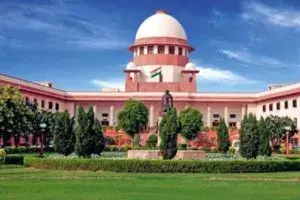
By Priya Adlakha and Ananyaa Banerjee
In light of the global pandemic and its subsequent impact, the Hon’ble Supreme Court had, vide its order dated March 23, 2020[i] and then again on April 27, 2021[ii], extended the period of limitation as prescribed under any general or special laws in respect of all judicial or quasi-judicial proceedings, whether condonable or not, with effect from March 15, 2020 until further orders.[iii] The said order came as a much-needed relief to all the lawyers/litigants who were facing hardships in filing/prosecuting their cases due to the sudden spike in Covid-19 cases and lockdown in various parts of the country.
In the latest development, the Hon’ble Supreme Court vide its order dated September 23, 2021, has now issued directions for recalling its Order of April 27, 2021.
Supreme Court’s order of April 27, 2021
The Supreme Court had passed the order of April 27, 2021 restoring its order dated March 23, 2020[iv] and directed that the period(s) of limitation, as prescribed under any general or special laws in respect of all judicial or quasi-judicial proceedings, whether condonable or not, shall stand extended till further orders.
Also read Spike in COVID cases- Supreme Court extends limitation period
The Apex Court had restored March 23, 2020 order in the wake of phenomenal rise in coronavirus cases during the second wave.
Supreme Court’s order dated September 23, 2021
Considering that the impact of COVID-19 virus is now on the decline and normalcy is being gradually restored, the Supreme Court, vide order dated September 23, 2021, has issued the following directions while recalling the suo motu order of April 27, 2021:[v]
- In computing the period of limitation for any suit, appeal, application or proceeding, the period from 15.03.2020 till 02.10.2021 shall stand excluded. Consequently, the balance period of limitation remaining as on 15.03.2021, if any, shall become available with effect from 03.10.2021.
- In cases where the limitation would have expired during the period between 15.03.2020 till 02.10.2021, notwithstanding the actual balance period of limitation remaining, all persons shall have a limitation period of 90 days from 03.10.2021. In the event the actual balance period of limitation remaining, with effect from 03.10.2021, is greater than 90 days, that longer period shall apply.
- The period from 15.03.2020 till 02.10.2021 shall also stand excluded in computing the periods prescribed under Sections 23 (4) and 29A of the Arbitration and Conciliation Act, 1996, Section 12A of the Commercial Courts Act, 2015 and provisos (b) and (c) of Section 138 of the Negotiable Instruments Act, 1881 and any other laws, which prescribe period(s) of limitation for instituting proceedings, outer limits (within which the court or tribunal can condone delay) and termination of proceedings.
Conclusion
This order of the Supreme Court comes as a breather to the rising pendency of cases and would help in the timely filing and prosecution of proceedings. The same may also help in expedition of cases wherein litigants were seeking an early relief.
In view of the order dated September 23, 2021 by the Hon’ble Supreme Court of India, the limitation period will expire after 90 days i.e. January 3, 2022, in such cases where limitation has already expired between March 15, 2021 to October 02, 2021.
Related Posts
End of extension of limitation period during COVID-19- Supreme Court
[i] https://main.sci.gov.in/supremecourt/2020/10787/10787_2020_1_12_21570_Order_23-Mar-2020.pdf
[ii] https://main.sci.gov.in/supremecourt/2021/10651/10651_2021_31_1_27776_Order_27-Apr-2021.pdf
[iii] https://ssrana.in/articles/supreme-court-extends-limitation-period/
[iv] In order of March 23, 2020, the Supreme Court had held that period of limitation in proceedings, irrespective of the limitation prescribed under the general law or Special Laws whether condonable or not shall stand extended w.e.f. 15th March 2020 till further order/s to be passed by this Court in present proceedings.
[v] https://main.sci.gov.in/supremecourt/2021/10651/10651_2021_31_301_30354_Order_23-Sep-2021.pdf
Foreign Trade Policy 2015-2020- Extended till March 21, 2022

By Rupin Chopra and Apalka Bareja
Introduction
The Government has recently notified extension of the Foreign Trade Policy (FTP) 2015-2020 till March 31, 2022.
The Foreign Trade Policy (FTP) 2015-2020 is a policy for the facilitation of foreign trade by reducing the cost and time of transaction and raising the competitive bar for Indian Exports. The Government has prioritized trade facilitation and taken measures in this direction through the provisions of this policy for the advantage of stakeholders of import and export trade.
Hand Book of Procedures (HBP)- Foreign Trade Policy
The Policy 2015-2020 under Para 1.03 empowers the Director-General of Foreign Trade (DGFT) notify through public notices to lay down procedures (Hand Book of Procedures) which may include appendices and Aayat Niryat Forms or amendment be followed by an exporter or importer or by any Authority for purposes of implementing provisions of the Foreign Trade (Development and Regulations) Act, the Rules and the Orders that are enacted under the provisions of the policy. In furtherance of this, a Hand-Book of Procedures was notified by the Director-General of Foreign Trade on June 30, 2019. The Hand-Book laid down a simple, transparent, and Electronic Data Interchange compatible procedure for an easy, user-friendly, and efficient management of foreign trade. The Hand Book provided procedure for e-applications where it introduced the use of Electronic Data Interchange (EDI) for DGFT.
Notification of Extension
Initially, the Hand Book of Procedures was to remain into force till March 30, 2020. However, through public notice No. 48/2015-2020 dated March 31, 2021 which extended the date mentioned in para 1.01 of the Hand Book by the substitution on the existing date with September 30, 2021. Recently the DGFT issued another public notice for extending the effect of Hand Book of Procedures. The notification 25/2015-2020 altered 3 paragraphs of the Hand Books and extended the relevant dates. In para 1.01 of the Hand Book, it substituted “shall remain in force until September 30, 2021” with “shall remain in force until March 31, 2022”. Another extension of date is provided under para 3.20 the validity of the “Status Certificates” issued under Foreign Trade Policy was extended for upto March 31, 2022. This certificate was earlier valid till five years from the date of application of recognition or September 30, 2021 whichever is later.
Under Para 4.12(vi) the date September 30, 2021 is substituted by March 31, 2022 for the purpose of ratified norms by any Norms Committee in the O/o DGFT on or after 01.04.2015 in respect of any Advance authorization obtained under paragraph 4.07. Such norms are shall be valid for the entire period, of the Foreign Trade Policy which has now been extended upto March 31, 2022.
Conclusion
The Hand Book of Procedures lays down such procedure for carrying out the necessary transactions for facilitating trade of import and export. As an effect of increase in tenure of the Foreign Trade Policy, the compliance of rules under the Hand Book have also been extended for the essential timeframe. The Hand Book and accompanying regulations are valid till March 31, 2022. The procedure have introduced E- governance in DGFT and presented many schemes for the welfare of the Import and Export Industries.
Related Posts
CCI Imposes fine of INR 200 Crores on Maruti Suzuki for Anti-Competitive Policies
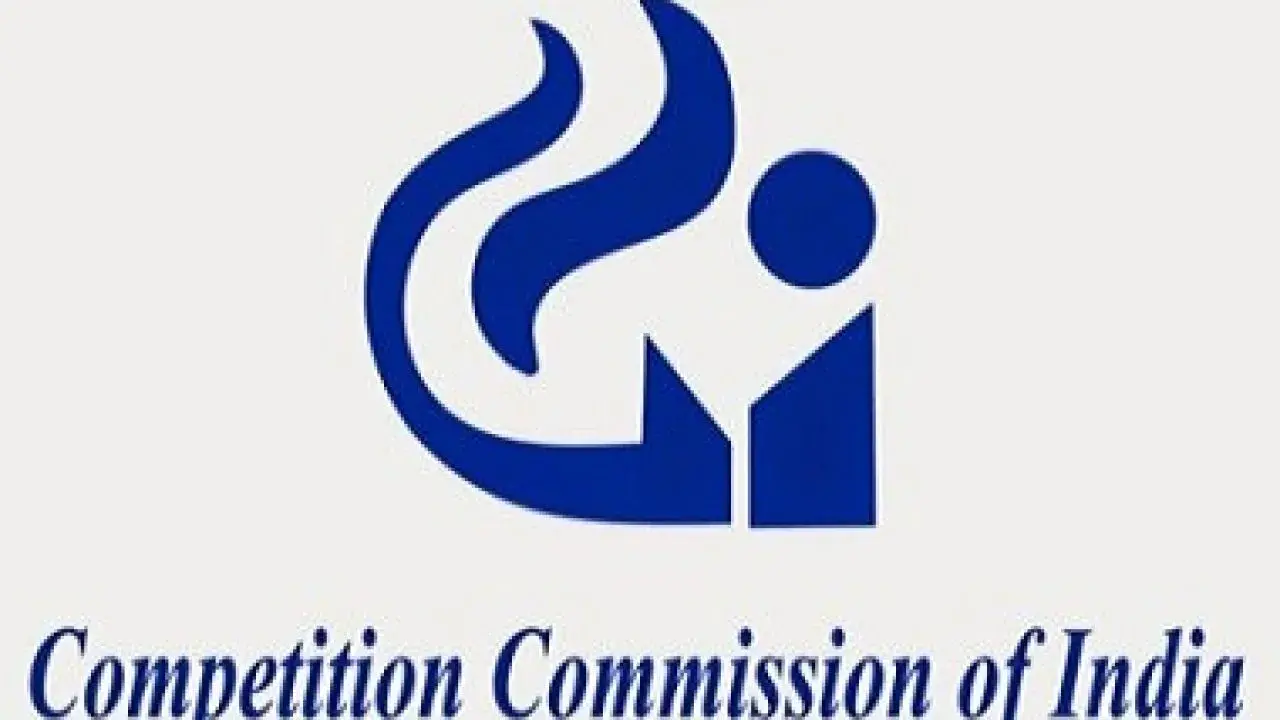
By Rupin Chopra and Apalka Bareja
The market watchdog i.e. Competition Commission of India (CCI) imposed a fine of ₹ 200 crore on India’s largest car manufacturer Maruti Suzuki India Ltd (MSIL) for its discount policy under Section 27[1] of the Competition Act, 2002. The matter which was taken up suo moto by the Commission in the year 2017 was finally concluded on August 23, 2021[2], wherein the Commission deduced that MSIL indulged in unfair business practices thereby causing an Appreciable Adverse Effect on Competition (AAEC) within India and in doing so, committing contravention of the provisions of Section 3(4) (e) read with Section 3 (1)[3] of the Act.
In furtherance to this, the Commission also passed a cease and desist order under Section 27(a)[4] of the Act against MSIL.
BACKGROUND
In 2017, CCI received a complaint from a purported Maruti Suzuki India Limited (MSIL) dealer, through an anonymous e-mail, wherein it was alleged that MSIL’s sales policy is against the interest of the customer as well as the provisions of the Competition Act, 2002 which prompted the Commission to take up the matter suo moto.
Maruti’s Discount Control Policy
The Commission had ordered a preliminary inquiry by the Director General (DG) on the basis of which it found out that MSIL had a “Discount Control Policy” in effect for the dealers, as per which the dealers were restricted from offering discounts beyond that prescribed by MSIL, freebies and so on to the consumers beyond what MSIL allowed thereby resulting in Resale Price Maintenance (RPM) which in turn was monitored by MSIL by appointing Mystery Shopping Agencies (MSAs) and was further enforced through the imposition of penalties.
Discount Control Policy: As per the said policy, the dealers of MSIL are not permitted to give discounts to their customers beyond that prescribed by MSIL in the announced ‘consumer offer’. If a dealer is found giving extra discounts, a penalty is levied upon the dealer by MSIL.
RESALE PRICE MAINTENACE AND ITS EFFECT ON THE MARKET
As per explanation (e) of Section 3 (4), resale price maintenance means and includes “any agreement[5] to sell goods on condition that the prices to be charged on the resale by the purchaser shall be the prices stipulated by the seller unless it is clearly stated that prices lower than those prices may be charged.”
The CCI after finding out such a practice of RPM being implemented by MSIL observed that RPM can prevent effective competition both at the intra-brand level as well as at the inter-brand level thereby reducing consumer welfare and in doing so, facilitating a formation of cartel.
The order also stated that “When a minimum RPM is imposed by the manufacturer upon the distributors, the distributors are prevented from decreasing the sale prices beyond the imposed limit. In other words, the mechanism does not allow the distributors to compete effectively on price. As such, stifling intra-brand competition results in higher prices for consumers.” Undoubtedly such a practice of RPM by MSIL has caused an appreciable adverse effect on competition (AAEC) within India and the Discount Control Policy has amounted to an anti-competitive agreement.
The said concept was also discussed by the Commission in a similar case of Fx Enterprise Solutions India Pvt. Ltd. V. Hyundai Motor India Limited, wherein CCI while imposing penalty of INR 87 Crore on Hyundai noted that the infringing anti-competitive conduct of Hyundai in the case included putting in place arrangements, which resulted into Resale Price Maintenance by way of monitoring maximum permissible discount level through a Discount Control Mechanism and also a penalty mechanism for non-compliance of the discount scheme which is similar to the mechanism adopted by MSIL.
WHAT ARE ANTI-COMPETITIVE AGREEMENTS?
As per Section 3 of Competition Act, 2002- No enterprise or association of enterprise or person or association of persons shall enter into any agreement in respect of production, supply, distribution, storage, acquisition or control of goods or provisions of services, which causes or is likely to cause an appreciable adverse effect on competition within India.
It can thus be said in order for an infringement of the provision to be established, it is important that the following elements are met with as in the case of MSIL:
- There must exist an agreement amongst enterprises or persons;
- The parties to such agreement must be at different stages or levels of the production chain, in respect of production, supply, distribution, storage, sale or price of, or trade in gods or provisions of services;
- The parties to the agreement must be present in different markets;
- The agreement should be of the nature as per section 3(4) of the Competition Act; and
- The agreement should cause or should be likely to cause an AAEC in India.
Since such practice of RPM by MSIL caused appreciable adverse effect on competition within India which amounted to an anti-competitive agreement, it also lowered inter-brand and intra-brand competition and led to products not being offered to the consumers at best prices.
CONCLUSION
The said case has brought the spotlight on the significance of Competition Rules and Policies in formulation of agreement and arrangement for those companies while entering into an agreement. The agreements shall be made to keep the both the parties at parity, ensuring that neither of them an advantage at a price paid by another. It is therefore important for companies to bear in mind the following points while entering into agreements:
- Not enter into agreements/arrangements that result in RPM either directly or indirectly;
- Not enter into an agreement that is likely to cause an appreciable adverse effect on competition by imposing:
- Any conditions that compel the reseller to buy an undesired product of the manufacturer resulting from the dominant position of the manufacturer.
- Any conditions that restrict the distributor from buying goods of other manufacturers.
- Any conditions that enable the distributor to have exclusive selling rights over the products of the manufacturer
- Any conditions that restrict persons or class of persons from purchasing and selling of a goods.
- Any conditions through which the manufacturer ascertains price for resale of a product below or above which a reseller cannot resale the goods.
- Not enter into an agreement that is likely to prevent an effective competition both at the intra-brand level as well as at the inter-brand level
However, what is also evident is that the Competition rules and policies in India though still at a nascent stage play a significant role in formulation of agreements and arrangements for those companies that consider entering the Indian marketplace. It is, therefore, important for such companies to carefully calculate and understand the effect of such arrangements and agreements and not be detrimental to the interest of the consumers and the economy.
Related Posts
Competition Law and its Evolution
[1] Orders by Commission after inquiry into agreements or abuse of dominant position- https://www.cci.gov.in/sites/default/files/cci_pdf/competitionact2012.pdf
[2] https://www.cci.gov.in/sites/default/files/press_release/PR-322021-22.pdf
[3] Anti-competitive agreements- https://www.cci.gov.in/sites/default/files/cci_pdf/competitionact2012.pdf
[4] Orders by Commission after inquiry into agreements or abuse of dominant position- https://www.cci.gov.in/sites/default/files/cci_pdf/competitionact2012.pdf
[5] Section 2(b) of the Act states “agreement includes any arrangement or understanding or action in concert- whether or not, such arrangement, understanding or action is formal or in writing or whether or not such arrangement understanding or action is intended to be enforceable by legal proceedings.
Botched up Hair, 2 Crores to Spare!!

By Nihit Nagpal and Manmeet Singh Marwah
INTRODUCTION
Fashion trends like clothing, new haircuts, and hairstyles are one of the most popular topics of conversation in social media. These new influences play a major role among the youth in constructing their confidence and self-esteem. The advent of the Influencer Culture has seen even more importance being attached to such trends. As such, people now more than ever, invest a lot of time and money on appearances and to keep up with the latest trends. In fact, this is extremely important to professions like acting, modelling, etc., wherein ones physical appearance is one of the most important factors in securing employment. In this context, a very interesting and rather shocking case came up in September 2021.
The National Consumer Dispute Redressal Commission (NCDRC) on 21 September, 2021, while recognizing this perspective in Aashna Roy vs Yogesh Deveshwar & Anr[1] has recently snapped ITC hotels with an order to grant compensation of a rather sizable amount of ₹ 2 Crores (approx. USD 265 Thousand) to a model who has modelled for major brands such as Pantene and VLCC.
BRIEF FACTS
A week prior to her major interview, Ms. Aashna Roy (Complainant) on April 12, 2018 visited the Salon of the famous ITC Maurya, New Delhi (Opposite Party No.2) to get a specific haircut/style for the purpose of an interview. The Complainant, having an image of the haircut as desired, gave directions to the Hairdresser appointed by the Opposite Party. However, to her surprise the hairdresser failed to follow her instructions and rather chopped off her entire hair length in a manner that they barely touched her shoulders! After the whole episode of making complaints to the general manager, manager of the Salons and the CEO of the ITC hotels, the Complainant was suggested to undergo a hair treatment arranged by the Opposite party No 2.
It was alleged by the Complainant that the hairdresser while giving her this treatment on the pretext of opening her hair cuticles, damaged her hair and scalp by scratching her scalp with his nails and by application of cream overloaded with ammonia. As a result, the Complainant’s scalp and hair were completely damaged and burnt. After all the futile attempts of the complaints made to the management of the ITC group and hotels, the Complainant to get remedy for the loss of her hair and damaged scalp (injury) approached the National Consumer Dispute Redressal Commission seeking a written apology from the ITC group and ₹ 3 Crores compensation for the loss of employment opportunities caused due to the treatment and the mental trauma suffered by her.
The Complainant who models for prestigious brands like Pantene and VLCC for hair products alleged that due to the faulty services of the salon, she has lost various job opportunities of modelling and acting, which is understandable that quality of hair would be the most important aspect in a commercial for haircare products. With loss of self-esteem, she was unable to continue with her work as a senior Management Professional and lost her income. While the Opposite party denied all the claims of the Complainant, the Complainant advanced her arguments by supporting it with the Medical Certificate that clearly established that the scalp has been damaged due to deficiency in service of the Opposite Party.
JUDGEMENT BY THE NATIONAL COMMISSION
The Commission found no substance in the Preliminary Objection raised by the Opposite Parties – that the Complainant does not fall within the definition of “Consumer” under section 2(1) (d) of the Consumer Protection Act, 1986 because no payment was made by her. The Commission while observing the transaction details between the parties also noted that it is highly implausible that a profit making body like ITC would provide any free services.
On plea of Mr. Yogesh Deveshwar (Opposite Party No.1) for deletion of his name from array of parties, the Commission stated that prior to his death, he acted as a non-executive Chairman of ITC hotel and was not involved in the daily operations of salons or the hotels, thus, no liability falls in his hands. Moreover, the Commission also absolved Mr. Sanjeev Puri, Chairman and Managing Director of ITC Ltd from any liability on the ground that he had recently attained the position of a Chairman and Managing Director of ITC Ltd, much after the alleged incident. The Hon’ble Commission while discharging the Opposite Party No.1 from any kind of liabilities placed reliance on its prior decision given by three Judges Bench of the National Consumer Dispute Redressal Forum in Amarjit Singh V. Gagandeep Singh & Ors. [2] wherein the Commission dealt with the question that in which category of service provider does the office bearers of Cooperative Credit Societies like Ex-Secretary or the Ex-President fall. The Commission in this case held that generally with regard to issues involving depositors, such office-bearers do not fall within the ambit of ‘service provider’ but if such office-bearers indulge in fraudulent activities, then they shall be held responsible for compensating the Consumers for poor services.
On the question regarding the competency of the Commission pertaining to its pecuniary jurisdiction to entertain this complaint, the Commission reiterated its prior decision pronounced in the case of Ambrish Kumar Shukla & Ors V. Ferrous Infrastructure Pvt Ltd[3] where it was held that both the amount paid by the consumer at the time of purchase of goods/ availing of services and compensation claimed by the victim of the deficient services must be added in order to ascertain the pecuniary jurisdiction of the Consumer Forum under the Consumer Protection Act, 1986. The Commission stated that in the light of this case, the present complaint filed under the 1986 Act would fall under the pecuniary jurisdiction of the National Consumer Dispute Redressal Commission. In addition, the Commission also highlighted that with the advent of the Consumer Protection Act, 2019 it is only the price of goods and services availed that will determine the monetary jurisdiction of the Consumer Fora.
The Commission while determining the quantum of compensation to be granted to the Complainant took a precedent note of guideline laid in Charan Singh V. Healing Touch and Ors[4] wherein the Hon’ble Apex Court stated that during the computation of damages on basis of accepted legal principles, the Consumer Forums are required to take into account all the significant aspects of the case and award compensation in a manner which not only benefits the victim consumer, but concurrently/ subsequently brings about a qualitative change in the outlook and approach of the Service Provider. Having observed this view, the Hon’ble Commission added that the term “Compensation” has a wide overtone and is inclusive of emotional and mental suffering stirred up due to the deficient services of the seller.
The Hon’ble Commission besides pointing out that the Opposite party No.2 tried to mask their actions by offering free treatment to the Complainant also took note of all the evidence including the WhatsApp chat where it was clearly visible that the Opposite Party admitted their negligence and of the Medical Certificate issued by a doctor mentioning that the Chemical Treatment led to the scalp disorder/damage. In view of the same the Hon’ble Commission, held the ITC Hotel to be guilty of deficient services.
The Commission along with lines of catena of judgements of the Hon’ble Supreme Court relating to the award of Compensation was of the considered view that reasonable and just compensation must be awarded to the Complainant who lost various modelling assignments and her aspiration to become a top model. The Commission opined that hair is one of the most prized possessions/attributes of a person and a significant amount is spent for its upkeep. The Complainant in the present case suffered mental suffering because of the deficient services of the Opposite Party No. 2 and held that Opposite Party No. 2 is not only guilty of triggering mental trauma due to negligence in their actions but also of medical negligence that led to scalp damage. Ultimately, the Opposite Party No. 2 was directed to pay ₹ 2 Crores to the Complainant by the Hon’ble Commission.
CONCLUSION
While the Judgement acts as a deterrent for the Service providers to be cautious of the services and goods offered to the public, the present case can also act as an invitation to plethora of cases where the consumers can misuse their powers by approaching the Courts/Commissions with no fault of the Service providers at all. It would be unjust to the Service providers if the complaint is made merely on the basis that the haircut given by the salon is ‘ugly’. Thus, while this is in principle indeed a good precedent, the application thereof in future cases would have to be done very carefully, by examining the specific facts and circumstances of each case. Nonetheless, the Case accentuates the Legal viewpoint laid by the Apex Court in various judgements that Consumers are to be redressed when there is insufficiency in the part of the service providers.
[1] CONSUMER CASE NO. 1619 OF 2018
[2] Revision Petition No. 2512 to 2518 of 2011
[3] I (2017) CPJ1 (NC)
[4] (2000) 7 SCC 668
Related Posts
Deficiency of Services under Consumer Protection Act, 2019
Government to issue SOPs to make New IT Rules Lucid

By Ragini Ghosh and Deepika Shrivastav
The Government of India (through the Ministry of Electronics and Information Technology), recently came out with the revised Information Technology (Guidelines for Intermediaries and Digital Media Ethics Code) Rules, 2021[1] delineating new (stricter) rules to be followed by social-media platforms/intermediaries and over-the-top (OTT) platforms.
The rules were notified in an attempt to curtail spread of hate speech, fake news, misinformation etc. which, owing to the ‘easy-sharing’ characteristic of social-media, proliferates in little to no time and may threaten national security or create social unrest. Further, the new rules also contemplate removal/disabling of content that is against the safety and dignity of individuals.
While critics have challenged some of the aspects of the new rules for being unconstitutional and against the very tenets of democracy and free speech, the Government has maintained that the new rules are not attempted to curb free speech and democracy in any manner and is only an attempt to safeguard the rights of Indian citizens by holding social-media platforms and other intermediaries, most of which are foreign companies, accountable for the content hosted thereon.
Apart from the concerns surrounding the legality of some of the aspects of the new IT Rules, 2021, the new rules were found to be deficient in providing clarity on certain essential aspects affecting social-media takedowns, namely, the procedure of filing the takedowns, the name and nature of enforcement agencies allowed to request takedowns, amongst others.
To address the growing discontentment between social-media platforms and other affected agencies, the Government is in the process of outlining Standard Operating Procedures (SOPs) on content takedown which are intended to act as clarifying Guidelines to the new IT Rules, 2021 and are expected to address the various issues surrounding content/information takedown.
INDUSTRY DEMANDS
Social-media platforms and other content-hosting intermediaries have been extremely vocal in expressing their apprehensions surrounding the new IT Rules, in specific, the stringent takedown timelines, which eliminate the possibility of appeals or a fair recourse.
Some of the key issues associated with the IT Rules, 2021 are:
- Procedural issues: Lack of a formal procedure to send takedown requests;
- Issuing Authority: Lack of clarity with regard to the enforcement agencies entitled to issue takedown notices as well as the Agency responsible for filing takedowns;
- Procedures to be followed to obtain information and assistance from an intermediary;
- Obstruction of Free speech: The rules are seen to be in contravention of the constitutional right to free speech;
- Traceability: Social-media platforms have so far been immune to the ramifications of the nature of messages exchanged between users privately owing to end-to-end encryption. However, the new mandatory requirement of traceability is believed to not only expose the platforms but also invade privacy of users and deprive them of a safe and private medium of communication and information exchange;
- Fair recourse: The new IT Rules direct the intermediaries to take down content within a time-frame of 36 hours from the time of request and failure in compliance may attract criminal penalties against key company executives. This stringent timeline is perceived to be extremely restrictive and designed to deny any possibility of fair-recourse.
According to the Economic Times[2], the social media and tech industry has requested the government to create a single touch-point i.e. establish a central portal or a common email address through which official requests for content takedowns or for obtaining information can be sent. This is likely to aid the social-media platforms in identifying and addressing requests coming from genuine sources and therefore will cut down the time expended in verifying the authenticity of the variety of requests received by the portals and increase their efficiency.
The new IT Rules envision a three-tier redressal mechanism[3] in the manner noted below:
- The takedown request is first to be handled at the level of the intermediary/platform: As per the new rules, the platforms have been allowed a strict timeline of 36 hours to remove/disable objectionable content. It is worth noting that special emphasis has been given towards the protection of women and children against sexual offences.
The Rules also mandate that all intermediaries and OTT platforms are to appoint a Grievance Redressal Officer (GRO) and the contact details of the Redressal Officer as well as the reporting mechanism should be clearly disclosed on the official website of the intermediary/platform for easy access.
Further, the Rules also require the identification of the “first originator of the information” in cases of offences affecting the sovereignty and integrity of the nation.
- If the intermediary or the platform is unable to satisfactorily address the concern regarding removal of objectionable material/content, the matter then passes on to a self-regulatory body appointed by the sector or industry;
- In the event matter still remains unresolved, it is then taken up by an inter-ministerial oversight committee of the Central Government.
WAY FORWARD
The SOPs appear to be a positive step towards harmonizing the needs of both – the enforcement agencies as well as the intermediaries and other platforms, so that the interests of both sides are equally represented and protected. Further, clarity regarding the roles and responsibilities of the parties involved as well as a combined effort towards streamlining the process of content takedown is being perceived as a welcome change which is likely to help avoid confusion, misinformation and compliance-related delays.
Related Posts
[2] https://telecom.economictimes.indiatimes.com/news/government-plans-sops-on-content-takedown/84627980
[3] https://www.drishtiias.com/daily-updates/daily-news-editorials/information-technology-rules-2021
Would lack of ‘Mens Rea’ constitute Medical Negligence? Supreme Court says YES

By Nihit Nagpal and Manmeet Singh Marwah
INTRODUCTION
To declare any act as a criminal offence, it must consist of two elements – Actus Reus (a guilty act) and Mens Rea (intention or knowledge of wrong-doing). Actus Reus is divided into two parts. The first part is the conduct which includes an act and its subsequent commission, and the second part is the consequences or result of that act. Mens Rea, on the other hand, includes knowledge of that act, the intention behind that act, and the condition that the act must be a voluntary act and not involuntary. These all constituents can be combined so as to constitute a ‘guilty mind’. Actus Reus is an external element, and Mens Rea is an internal element. If any one of the elements is missing, then that act is not considered to be a criminal offence except in some special circumstances.
The Hon’ble Supreme Court vide its order dated August 06, 2021 in Prabhat Kumar Singh v. State of Bihar[1] has recently made it clear that the absenteeism of Mens Rea i.e. malicious or bad intent is not a significant element in cases of medical negligence. The Court at the same time has also emphasized that proper procedure needs to be followed while trying any criminal complainant pertaining to medical negligence.
BRIEF FACTS
The Appellant had filed a complaint before the Additional Chief Judicial Magistrate, Patna against private Respondents for an offence punishable under Section 304[2], Section 316[3] / Section 34[4] of the Indian Penal Code, 1860. After hearing the evidence of the three witnesses and analyzing other documentary evidence, the Trial Court issued summons to the Respondents on December 24, 2016. Thereafter, the Respondents challenged the summoning order before the Hon’ble High Court of Patna. The Hon’ble High Court vide its order dated August 14, 2020 set aside the summoning order passed by the Court of Additional Chief Judicial Magistrate, Patna on the ground that there was no evidence presented before the Court which reflected the presence of Mens Rea to show malicious or bad intent of the Respondents. Thereafter, Appeal was filed before the Hon’ble Supreme Court and the issue before them was whether Mens Rea is necessary in the case of medical negligence to determine the guilt of an accused or not?
JUDGEMENT BY THE HON’BLE SUPREME COURT
The Apex Court set aside the impugned judgment and order of the Hon’ble High Court as well as summons order dated December 24, 2016 issued by the Trial Court on the grounds that according to the guidelines provided in the case of Jacob Mathew v. State of Punjab & Anr.[5], the Trial Court should have insisted on medical evidence or examination of professional doctor by the complainant in support of his case made out in the complaint.
The Apex Court further observed that the decision given by the Hon’ble High Court is erroneous because, in the case of medical negligence, there is no requirement to show Mens Rea as intent. Sans Mens Rea also constitutes the offense of medical negligence. The Apex Court referred the matter back to the Trial Court for reconsideration of the issue afresh.
CONCLUSION
To fully understand the judgment, we have first to understand the meaning of medical negligence. A health care provider’s conduct or omission that deviates from accepted medical standards of practice and causes injury to a patient is known as medical negligence. Similarly, negligence is described as failing to do something that a prudent and reasonable person would do or doing something that a prudent and reasonable person would not do, based on the principles that typically govern the conduct of human affairs.[6]
In criminal law, the presence of Mens Rea is frequently required for responsibility. It means that no one can be penalized unless he knew he was doing something improper or if a reasonable person in his position could have prevented the detrimental consequence by exercising reasonable caution. However, in civil law, if someone causes harm to another person, he must pay for it, whether he did it intentionally, negligently, or by chance. In such circumstances, he has caused harm and must compensate the plaintiff/victim because the primary goal of civil actions is to remedy the plaintiff’s harm, not to punish for their wrongdoing.
The liability under Section 304 of the Indian Penal Code, 1860 is based on the idea that the effects of an unlawful act can be predicted. Thus, if a medical practitioner performs an act that he did not intend or even anticipate but that a reasonable medical practitioner would have predicted as likely to cause death under comparable circumstances, he might be held liable for Medical Negligence according to the facts and circumstances of the case.
[1] Prabhat Kumar Singh Vs. State of Bihar SLP(Crl.) Nos. 2395-2396 of 2021
[2] Section 304 of the Indian Penal Code, 1860. Punishment for culpable homicide not amounting to murder.—Whoever commits culpable homicide not amounting to murder, shall be punished with 1 [imprisonment for life], or imprisonment of either description for a term which may extend to ten years, and shall also be liable to fine, if the act by which the death is caused is done with the intention of causing death, or of causing such bodily injury as is likely to cause death; or with imprisonment of either description for a term which may extend to ten years, or with fine, or with both, if the act is done with the knowledge that it is likely to cause death, but without any intention to cause death, or to cause such bodily injury as is likely to cause death.
[3] Section 316 of the Indian Penal Code, 1860. Causing death of quick unborn child by act amounting to culpable homicide.—Whoever does any act under such circumstances, that if he thereby caused death he would be guilty of culpable homicide, and does by such act cause the death of a quick unborn child, shall be punished with imprisonment of either description for a term which may extend to ten years, and shall also be liable to fine.
[4] Section 34 of the Indian Penal Code, 1860. Acts done by several persons in furtherance of common intention.—When a criminal act is done by several persons in furtherance of the common intention of all, each of such persons is liable for that act in the same manner as if it were done by him alone.
[5] (2005) 6 SCC 1
[6] Denning Lord MR. The Discipline of Law. New Delhi; Aditya Books Private Limited: 1993
Related Posts


